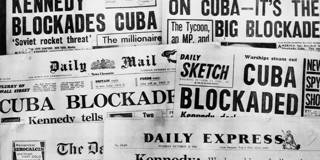A new book shows that the nuclear standoff in 1962 happened because, “operating under mutual distrust,” the Americans and Soviets “simply misread each other.” While Vladimir Putin and Joe Biden claim to seek a “stable and predictable” relationship, the risk of a devastating miscalculation is no less salient today.
MOSCOW – As US President Joe Biden prepares to meet with his Russian counterpart, Vladimir Putin, the stakes might not seem all that high. With bilateral relations at a post-Cold War low, and the United States more concerned about China than Russia, it is hard to imagine the relationship deteriorating further. And yet, as the historian Serhii Plokhy of Harvard University reminds us in his new book, Nuclear Folly: A New History of the Cuban Missile Crisis, the wrong move can all too easily take these old adversaries to the precipice of catastrophe.

MOSCOW – As US President Joe Biden prepares to meet with his Russian counterpart, Vladimir Putin, the stakes might not seem all that high. With bilateral relations at a post-Cold War low, and the United States more concerned about China than Russia, it is hard to imagine the relationship deteriorating further. And yet, as the historian Serhii Plokhy of Harvard University reminds us in his new book, Nuclear Folly: A New History of the Cuban Missile Crisis, the wrong move can all too easily take these old adversaries to the precipice of catastrophe.